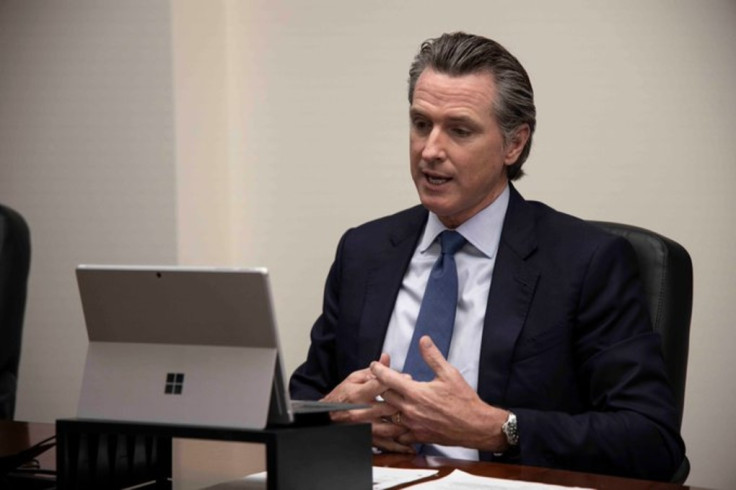
KEY POINTS
- California voters passed Proposition 50, allowing a new congressional map.
- The move is designed to counter Trump-aligned redistricting in GOP-run states
California Governor Gavin Newsom has delivered the first major Democratic counter-punch to Donald Trump's aggressive redistricting campaign, securing approval for a new congressional map designed to offset Republican gains in key states.
Proposition 50, passed this week in a special election, gives Democrats the ability to redraw California's districts mid-decade, potentially adding up to five House seats in the party's favor.
The victory arrives as Republicans, spurred by Trump and GOP-controlled legislatures, push their own redistricting efforts in Texas and other red states. With Trump urging aggressive map-drawing, Democrats saw California's move as their most powerful response yet.
A Behind-the-Scenes Gamble
The initiative did not begin with the confidence Newsom projected publicly. In private meetings last summer, Democratic congressional leaders and Newsom aides debated whether California could realistically mount such a challenge.
Unlike Texas, California had an independent redistricting commission, and replacing it mid-cycle would require voter approval and enormous fundraising.
'We didn't know that it was actually achievable,' one senior Democrat involved in the strategy told The Washington Post. 'But we didn't have the luxury to do anything else but focus.'
Newsom leaned into the fight, using his online platforms to signal readiness. During a viral interview in July, he quipped that California 'could gerrymander like no other state'.
Days later, after Trump briefed Republicans on their mapping plan, Newsom escalated his rhetoric: 'Two can play this game.'
Voters Back Prop 50
On Election Day, voters approved Proposition 50, authorising California lawmakers to redraw the map. The measure passed after a coordinated campaign appealing to Democratic fears of one-sided Republican redistricting elsewhere in the country.
Supporters framed the move not as partisan revenge, but self-defense. 'We cannot afford to sit back while Republicans redraw America's democracy,' a senior Newsom adviser said. 'California had to lead.'
The measure gives Newsom more than a political win. It hands him a national platform at a crucial moment. With speculation already swirling about a 2028 presidential run, the redistricting victory arms him with a defining achievement and a surge in small-dollar donor support.
Critics Cry 'Power Grab'
Republicans immediately blasted the move, calling it a betrayal of California's reform-driven independent commission model.
GOP figures derided the initiative as the 'Newsom-mander,' accusing Democrats of hypocrisy after decades of arguing for non-partisan maps. 'This is a power grab, plain and simple,' one California Republican lawmaker warned, urging voters to reject 'Newsom's political ambition.'
Even some former California leaders questioned the logic. One former governor dismissed claims that the change would be temporary, calling promises to restore the commission 'fantasy.'
Despite the criticism, Newsom's team believes the gamble will be vindicated. 'Ultimately it was the governor's call,' one strategist said. 'People had to jump off the cliff together — and voters caught us.'
The National Battlefield
California's move underscores what is shaping up to be one of the most consequential congressional fights in modern politics. With the House majority razor-thin, even a handful of new seats could reshape national power heading into 2026 and 2028.
Democrats are now urging Virginia, New York, Illinois and Colorado to consider similar moves. Meanwhile, Republicans continue to redraw maps in states where they hold control, confident they can expand their advantage.
For Newsom, the stakes are both political and personal. The success of Prop 50 gives him momentum — but also responsibility. He must now oversee a process that withstands legal scrutiny, public pushback and the inevitable national spotlight.
The governor insisted the fight was about democracy, not partisanship. 'California will not unilaterally disarm,' he told supporters after the vote. 'If others break the rules of fairness, we must ensure our voice — and the voice of our voters — is not diminished.'
What happens next could determine who controls Congress — and may shape Newsom's future ambitions on the national stage.







